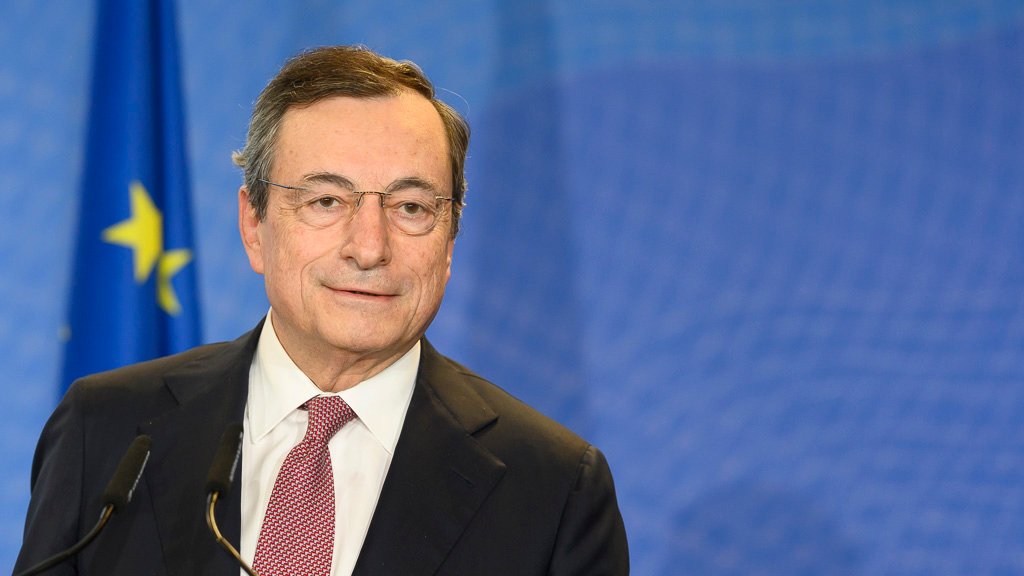Here’s how the Economist pampers Mario Draghi

If Draghi is a good bet for Italy, it also seems a good bet for the EU. That's why according to The Economist weekly
Italy is big enough to break Europe. Some countries, such as Greece or Portugal, are highly indebted but their fellow Europeans can bail them out if necessary. Others, like France, Spain or Germany, have large debts in absolute terms, but thanks to the size of their economies and a decent record of growth they can do it without scaring the markets. Only Italy has a triple problem: a large debt in both relative and absolute terms, plus an economy that was stagnant even before covid-19 hit. The arrival of Mario Draghi, who was sworn in as Italian prime minister on February 13, offers some hope that the sick man of Europe will receive a healing injection – writes The Economist .
Draghi, a former head of the European Central Bank, is the latest in a long line of technocrats to be installed in the prime minister's office. This is certainly not ideal. Unelected heads of government are in principle an affront to democracy. They are often unable to communicate with the public. Their elevation can play into the game of populists, who will always argue that the elites are conspiring to bring down the masses. When the prime minister in question is a former international banker, demagogic slogans practically write themselves.
However, Draghi has the support of all the main Italian parties, with the sole exception of Fratelli d'Italia, an organization of neo-fascist origin, which will undoubtedly take a dangerous side line. Draghi is more than just a technocrat; he also has considerable political and diplomatic skills, as he demonstrated when he led the euro through its crisis a decade ago. He will need it.
Previous governments have often broadly agreed on what must be done to save Italy from its chronic malaise. It is one of the worst places in the European Union to do business, due to a slow and erratic judicial system, a penchant for bureaucracy and a tax system that discourages job creation. Government subsidies have failed to correct the profound structural imbalance between the prosperous north and the south of Italy, one of the least prosperous regions in Europe. All of these things need to be fixed, but a number of weak and cash-strapped coalition governments have made little progress. Draghi has a chance to do better. For now, at least, he has a huge majority in parliament.
It will also have a lot of sugar to help the unsightly medicine come down. Thanks to a € 750 billion (US $ 900 billion) recovery fund that the EU agreed last summer, Italy is entitled to around € 200 billion in grants and loans over the next six years. Money comes with the right kind of conditions. Much of it has to be spent on green or digital projects; and agreement on a detailed reform program is a key part of the mix. Italy's draft plan is better than some that other member states presented in Brussels. Even so, Draghi needs to strengthen him. In a speech to parliament on February 17, he struck the right notes, promising to reform taxes, courts and public administration, but also promising not to bail out unprofitable businesses.
If Draghi is a good bet for Italy, it seems like a good bet for the EU too. The European Council could use another heavyweight. Angela Merkel is about to leave the scene; elections are scheduled for September 26th. Emmanuel Macron faces his battle for re-election early next year. Britain, formerly the swinging vote in the trio of ruling powers in Europe, has fled the scene.
A powerful and highly regarded Italian will also help shift the EU's ideological balance in the right direction. If the bloc is to survive and thrive, it needs to invest much more money, raising it on international markets and thus allowing its weaker countries to benefit from the credit of the union as a whole. The recovery fund offers a good model that should be used again in the future; Draghi will be in a good position to lobby for this. This can only happen, however, if the existing plan is a success. If Super Mario can't make it work for Italy, maybe no one can.
(Extract from the press review of Eprcomunicazione )
This is a machine translation from Italian language of a post published on Start Magazine at the URL https://www.startmag.it/mondo/mario-draghi-economist-italia-europa/ on Sat, 27 Feb 2021 07:00:34 +0000.
